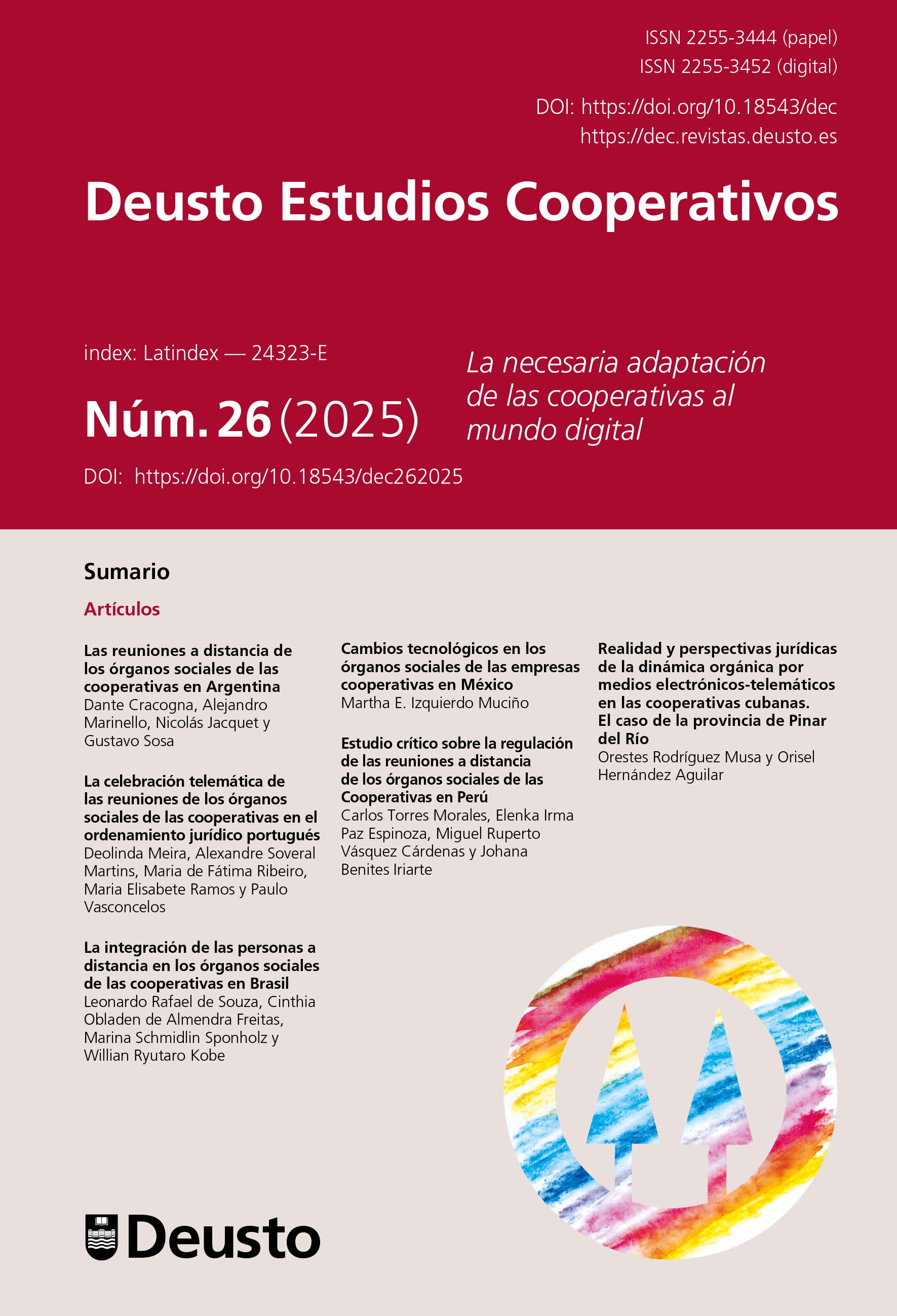The online holding of meetings of cooperative governing bodies under Portuguese law
Abstract
The digitalization of the functioning of cooperative bodies may contribute to strengthening their democratic character and achieving more efficient management, provided that equitable access, the legal validity of electronically executed acts, and the protection of the fundamental rights of members —particularly their privacy— are ensured. Although the Portuguese Cooperative Code does not contain specific provisions regarding the telematic operation of social bodies, it allows for the supplementary application of the corporate regime established in the Commercial Companies Code for joint-stock companies, insofar as cooperative principles are not disregarded. This framework enables cooperatives to convene and hold virtual meetings, as well as to use electronic means for participation and the exercise of voting rights, provided that guarantees of authenticity, security, intelligibility, and fairness are observed. Furthermore, cooperatives are responsible for promoting the digital inclusion of all members, with the possibility of allocating cooperative education and training funds for this purpose.
Received: 4 June 2025
Accepted: 29 August 2025
Downloads
Copyright (c) 2025 University of Deusto

This work is licensed under a Creative Commons Attribution-NonCommercial 4.0 International License.
The authors, by submitting their manuscripts to the Deusto Estudios Cooperativos (DEC), accept the conditions listed below on copyright and undertake to comply with them. They do not sign any document of assignment of rights to the Publisher.
1. Authorship: The author must be the sole creator of the work or legally acting on behalf of and with the full agreement of all the authors.
2. Copyright and Code of conduct:
a) Authors warrant that their work is original; has not been previously copyrighted or published in any form; is not under consideration for publication elsewhere; its submission and publication do not violate the Ethical Guidelines of DEC and any codes (of conduct), laws or any rights of any third party; and no publication payment by the Publisher (University of Deusto) is required.
b) Authors grant to the Publisher the worldwide, sub-licensable, and royalty-free right to exploit the work in all forms and media of expression, now known or developed in the future, for educational and scholarly purposes.
c) Authors retain the right to present, display, distribute, develop, and republish their work to progress their scientific career provided the original publication source (DEC) is properly acknowledged.
d) Authors warrant that no permissions or licences of any kind have been granted or will be granted that might infringe the rights granted to the Publisher.


3.jpg)
3.jpg)







